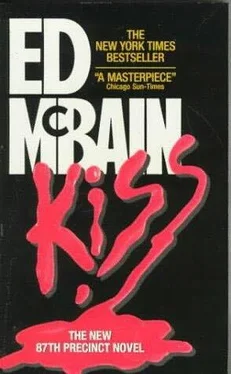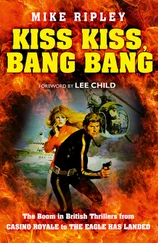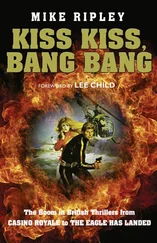"And he didn't see him, huh?”
"No, sir. But he was ...”
Monoghan and Monroe came wandering over, hands in their pockets, hats tilted low like gunslingers.
"Evening, Chief," Monroe said.
"Evening," Monoghan said.
"Uhm," Fremont said, and nodded curtly.
"Doorman didn't see anybody suspicious going in or out," Monoghan said.
"But he says he was ...”
He fell silent all at once.
The ambulance attendants were coming out with a stretcher.
The men all turned to watch them.
The resident intern followed the stretcher out of the building. He was wearing a black overcoat over his hospital whites, a stethoscope hanging out of his pocket.
There was a black body bag on the stretcher.
Carella's application for a search warrant read: 1. I am a detective of the Police Department, currently assigned to the 87th Detective Squad.
2. I have in my possession several bullets and spent cartridge cases recovered at the scene of a murder that took place in apartment 12A at 907 Butler Street, this night of January 17 inst.
3. The stampings on the cartridge cases indicate that the bullets were manufactured for use in a Colt .45-31liber automatic pistol.
4. I have information based upon my personal knowledge and belief, and facts supplied to me by a normally reliable source, that a man named Andrew Denker, alias Andrew Darrow, now residing in apartment 4C at 321 South Lewiston Street did sometime at the end of December, illegally purchase a pistol of the same caliber and description as the pistol used to fire the aforesaid cartridges.
5. Based upon the foregoing normally reliable information and upon my personal knowledge, there is probable cause to believe that a pistol in possession of Andrew Denker may constitute evidence in the crime of murder.
Wherefore, I respectfully request that the court issue a warrant in the form annexed hereto, authorizing a search of the person of Andrew Denker and the premises at 321 South Lewiston Street, apartment 4C. No previous application in this matter has been made in this city or any other court or to any other judge, justice, or magistrate.
This time, the warrant was granted.
They decided that the best time to hit the apartment was immediately. They further decided that if Denker was the man who'd committed the murder, then it would be risky if not foolhardy to go in with insufficient numbers. Cops were heroes only on television. In real life, they had wives and children and they wore bulletproof vests when they were about to take a door.
Meyer called Inspector John Di Santis, the Emergency Service commander, and told him they needed a six-man backup on a No-Knock warrant. Di Santis asked him when. Meyer said right now-which was already a quarter past ten-and they arranged to meet around the corner from Lewiston at eleven-thirty that night. The plan was to go in silently and undetected, the E.S. cops assaulting the door in ceramic vests and armed with riot guns, the detectives and their search warrant immediately behind them.
At twenty past eleven, Meyer and Carella were parked at the curb on Geurtz Avenue, in front of a bar named Ballantine's, waiting for the E.S. team to arrive. A leggy young girl wearing a short blue coat over blue stockings and a pleated blue mini came out of the bar and waved back to someone inside. "So long, Daisy!" a man called, and the girl went off up the street, humming softly to herself. The night was silent again.
They waited. Carella looked at his watch.
There were sirens in the city. There were always sirens in this city, but there seemed to be a great many of them now, shrieking to the night. On the radio, they heard Molly O dispatching cars and ambulances to the airport.
"Must be something," Meyer said.
A moment later, Di Santis radioed them.
"This is Inspector Di Santis," he said. "A plane coming in from Baltimore - just crashed at Franklin, we need The Truck out there and every available Emergency Service unit. Can this thing wait till later tonight?”
"We'll get back to you," Meyer said.
The two men sat in the car, talking it over.
Carella blew his nose.
Meyer said, "We wait till later, he may be gone. If he isn't gone already.”
"Yeah.”
"Never mind Chicago, he could've moved to anyplace else in this city.”
"Except he doesn't know we've got the address here.”
"Yeah, but ...”
"I'm saying he doesn't know we're onto him. He's got no reason to run.”
"Except murder.”
"Which is sometimes a reason to stay put. Till it all blows over.”
"Yeah.”
"So what do you think?”
"Let's go do it," Meyer said. "Get it over with.”
Carella looked at his watch.
"Yeah, let's go do it," he said, and sighed.
"You all right?" Meyer asked.
"Yeah, I'm okay.”
His father's murderer had walked out of a courtroom a free man, but he guessed he was okay.
They went around the corner to Denker's building and looked up the facade to the row of fourth-floor front windows. Not a light was burning. They went into the building then, and stood in the entrance hallway downstairs, trying to warm up a little.
The temperature outside was four degrees Fahrenheit, which Carella figured was about minus sixteen degrees Celsius. That was cold in any language. He and Meyer were both wearing bulletproof vests under their coats. The vests made them look bulkier than they actually were.
These weren't the virtually foolproof ceramic vests that you wore when some lunatic was shooting down from a rooftop with a high-powered rifle. These paneled Kevlar-and-cotton vests weren't nearly as effective, and many cops refused to wear them because they hampered movement. But Carella and Meyer had good reason to believe that the man upstairs-if there was a man upstairs had committed murder. They were here, in fact, with a warrant that authorized them to search for the .45-31liber Colt automatic that had been the murder weapon. They would have felt happier with the Emergency Service backup they'd been promised, but that was ancient history.
They had taken off their gloves. Meyer was blowing on his hands. Carella had his hands in his pockets.
The glass panel in the upper half of the building's entrance door was frosted over except for an uneven circle at its center. Through the clear patch of glass, the detectives could see an occasional automobile passing by, its headlights cutting through the darkness outside. It was almost midnight. They hoped Denker would be in bed, asleep, secure in the knowledge that everyone thought he'd already vacated the apartment. Their warrant came equipped with a No-Knock provision. They had fought like hell to get it, finally and in desperation showing the supreme court magistrate an eight-by-ten black-and-white photo of what the .45 had done to the victim's face. The judge finally agreed that a No-Knock might be advisable in this instance.
"How you doing?" Meyer asked.
"My fingers are still a bit stiff.”
"Take your time," Meyer said. "If he's still here, we're okay.”
He was wearing a woolen watch cap over his bald head. His cheeks were still red from the bitter cold and the wind outside. His blue eyes seemed brighter against the rawness of his face. This had been the coldest winter he could remember, starting early in November it seemed, and bludgeoning the city with on-and-off single-digit temperatures ever since. Carella was wearing a pea coat and blue jeans over long underwear. No hat. L. L. Bean boots. Outside, a traffic light changed. The clear patch on the frosted-glass panel segued from green to yellow to red. Meyer kept blowing on his hands. Vapor plumed from his mouth. The patch of clear glass turned green again.
"Ready when you are," Carella said.
The guns came out.
Читать дальше












